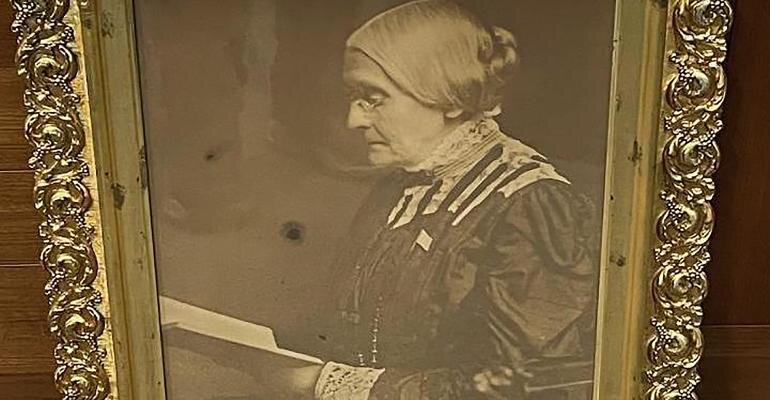Publications

What Do You Do When The Family CEO Suffers From Dementia?
The result of such strategic planning by the family, and advised by their professionals, is that the Family always has a “Plan B” to deal with difficult situations, and understand the time and costs needed to implement that Plan B if something like mental illness does strike. Without those strategic options, the family is thrown back onto the tactics available through the courts that may be surprisingly costly and time-consuming.

Going Beyond Preserving A Collection – The Private Operating Foundation
Many times, an artist or collector wishes to preserve their art collection by donating the collection to a museum or charity. Often the museum, university or other organization is unwilling or unable to integrate, preserve, store and display the entire collection along with the associated documents. Even if there is a financial gift to sufficiently endow the collection today, there is no certainty that the endowment will be able to fund the charity indefinitely into the future. If you are an artist or a collector wanting to preserve your collection, consider a Private Operating Foundation. This entity can be used not only to preserve a legacy but to define and shape the future.

For The 99.5 Percent Act - What It Is, What It Does And What To Do About It.
On March 25, 2021, Senator Bernie Sanders (I-VT) and Senator Sheldon Whitehouse (D-RI) introduced the “FOR THE 99.5 PERCENT ACT” which will dramatically and historically change estate planning by reducing the federal estate and gift tax credits, increasing estate, gift, and GST tax rates and including assets in certain trusts that are not now includible in estates. The changes would be effective for decedents dying and gifts made on or after December 31, 2021. Planning: This is a “use-it-or-lose-it-now” provision which means that your $11,700,000 exemption can be passed either by dying or by making gifts. Transfers must take place before the effective date of these changes. The following is a summary of the changes

Own A $7 Million Trading Card? Time To Do Some Income Tax Planning!
Baseball cards, and other trading cards have had a surge in popularity. Finding and selling one of these valuable cards could be a great return! When you do, also need to think about income taxes when you sell artwork or collectibles. Your income from selling tangible assets, such as trading cards, is taxed differently than income or gains from other investments. How you own a collectible will control how much income tax you will pay on the gains from a sale.

The Met Is selling Art? The Debate Over Deaccessioning Continues
The business model of every art museum has been under enormous stress during the pandemic and economic reality of 2020. The American Association of Museum Directors made a 180-degree turn on the use of funds from the sale of art from the museum’s collection last spring allowing some of the proceeds to be used to meet operating costs. The debate continues over whether the temporary lifting of the restrictions should be made permanent, amplified by the Metropolitan Museum of Art considering selling art and using the proceeds to cover operating costs.

The Challenge Of Trustee Selection
The most challenging decision an estate planner must make is who to recommend as a trustee for a client. Trusts execute the estate plan, and the trustee is the lynchpin of any trust. The trustee plays multiple roles; a financial and ministerial role; they are responsible for the prudent investment of assets as well as administrative and executive duties of overseeing the trust; the role of consigliere to the family, a trusted advisor and counselor willing to argue with the client when needed, without ambition and giving dispassionate advice

Will Changes To The Tax Law Be Retroactive?

What to Do When You Find Susan B. Anthony in Your Attic
You come across an item with great financial, social and historical value or realizing that you now possesses a long-forgotten cache of art or collectibles. What steps should you take to preserve assets or get the guidance to properly sell unique items?

How To Divide Personal Property In An Estate
When I help settle an estate the most challenging task is mediating what is the “best” way to divide the jewelry, art, furniture and other tangible personal property of the deceased among their heirs. People behave irrationally when they feel that they were promised something under the will. They already feel that the item is theirs. This is compounded by the friction between and among family members that existed during the decedent’s lifetime.
So, what is the best way to divide your assets? The fact is that there is no “best” way to divide assets, but there are some things you can do, or refrain from doing, to help avoid a family fight.

Financial Advisor: How To Plan For LGBTQ, Blended Families, Cohabitation, Other Nontraditional Families
Regardless of the decisions at the Supreme Court, or the impact on the state family courts, there are many ways that non-traditional families can maintain control. This applies not only to the LBGTQ couples, but also for families where there is gray divorce, blended families and stepchildren through non-marital cohabitation, single parents by choice, multinational families, and children born through assisted reproductive technologies (ART). It also includes transgender, gender non-binary, or gender fluid individuals.
The key is drafting for flexibility so that the wills, trusts, and other documents follow the clients’ wishes rather than leave it to the courts to decide.

The Tragedy Of The Commons: How A Life Crisis Effects Family Wealth
“Strategic planning, governance, and business processes take a back seat to the immediacy of the leader’s life crisis and how the crisis will be managed, ignored, or denied by the leader and the stakeholders in the organization. Response to the crisis largely determines the future and well-being of the business and the family.” -Steven S. Rolfe, MD
In most cases, a family leader plays the role of the governor of the engine that is the family wealth. The leader has the personal authority to set agendas and make decisions between competing demands on the common resources of the family. So long as they are able to act in such a way, disputes do not rise to the level of threatening the viability of the family enterprise. In Systems Dynamics there is a name for this situation, The Tragedy of the Commons.

Whither Donations Of Art To Museums In 2021?
What is the future of art collections and museum donations for 2021 and beyond?
Will museums with limited capacities be willing and able to accept specific artwork or even entire collections, now owned by artists and collectors who are in their 80’s and 90’s?
“What is required is planning for a current and ongoing collaboration between artists and collectors on one hand,and museums on the other for the creation and access to a virtual as well as physical collections.”

The Year Ahead - Proposed Tax Changes And Their Impact.
Tomorrow, January 2oth, Joe Biden will be sworn in and for the first time since 2009, the Democrats will control the White House, the House, and the Senate (though with Vice President Harris providing the tie-breaking vote). During the campaign there where a number of proposals, here are some:
● Increase corporate tax rates from 21% to 28%,
● For companies with over $100 million in net annual income, a corporate minimum tax of 15%, though net operating losses and foreign tax credits still apply,
● Increase the Global Intangible Low-Tax Income tax rates, imposed on foreign subsidiaries of US companies, from 10.5% to 21%,

FFI: Family Offices and Artwork: Mitigating the risks
Families that use family office services expect family office professionals to help them mitigate risks, both to investments and to concentrated illiquid holdings, such as real estate or closely-held businesses. What sometimes goes overlooked, however, is how to mitigate the risks of ownership of artworks, numismatics, jewelry, cars, and other collectibles. Risk mitigation for these treasures begins with documenting what the client has, aggregating the individual items into collections, and beginning the management of the items as a collection.

Forbes: Planning Checklist For S. Corp. Shareholders
When income is distributed to stockholders of U.S. corporations there are two levels of taxation: one at the corporate level (as adjusted net income) and one at the stockholder level (as dividend income). If the corporation and shareholders elect, the distributions to stockholders are treated as adjusted net income to the stockholder and the corporation pays no income taxes. This election is limited to small business corporations (a so-called S. Corp.) which are defined as a domestic U.S. corporation, which is not an ineligible corporation (a financial banking or DISC corporation), which does not have more than 100 eligible shareholders, all stockholders must be eligible persons or entities, and has only one class of stock outstanding.

Securing Treasures: What HNW Owners, Advisors Should Do
Families that use family office services expect family office professionals to help them mitigate risks, both investment and concentrated illiquid holdings, such as real estate and closely held businesses. Sometimes overlooked is how to mitigate the risk of the ownership of artwork, numismatics, jewelry, cars and other collectibles. Risk mitigation for these treasures begins with knowing what your client has, aggregating the individual items into collections and beginning the management of the items as a collection.

Forbes: Thoughts On Collecting Art
The recent death of famed art collector Sheldon Solow has raised in my mind the more common question for estate planners about what to do with art in an estate. Once a person starts accumulating Art, their mind often turns to forming a Collection. Any estate planner for the collector should ask some hard questions. The fact is that Art of every description are sold each year as adding to a collection; unhappily, most of these collections fail in the long or short term to be financially or artistically successful and end up being broken up at the death of the Collector. If you are intent on creating a collection, here are a few thoughts on what to do, and not do, from an estate planner’s perspective.

Forbes: Where Do We Go From Here?
I mentioned in a previous article on how not to tear a family business apart the usefulness of Scenario planning. I have had a few questions on what, exactly, scenario planning is and how it works with estate planning so here is a bit more on the technique.

Forbes: How Not To Tear A Family Business Apart
A May 2017 article in the Buffalo News by Lou Michel described the case of Aida Corey, her family and Permalink Products, a successful upstate New York manufacturer. It is well written and I strongly recommend you read it. In sum, Aida, who inherited the business from her husband, clearly was both suffering from some form of mental illness and was taken advantage of by non-family advisor who was in a position of influence.

Forbes: Qualified Opportunity Zone Investments: Does It Make Sense During The Covid 19 Crisis?
The Qualified Opportunity Zone (QOZ) investments Final Regulations published a year ago made clear some of the ambiguities noted in the Proposed Regulations, but so much has changed since then there is a question whether it makes sense to invest in a QOZ fund. QOZ investments remain a powerful, but uncertain, tax planning tool; but, one that any individual taxpayer who will realize large amounts of capital gains or an interest in impact investing, must consider.
